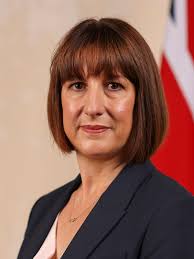Rachel Reeves: Pioneering Chancellor Tackles Britain’s Economic Headwinds

Historic Appointment and Early Achievements
Rachel Reeves made history when she became Chancellor of the Exchequer on July 5, 2024, following Labour’s victory in the general election. She succeeded Conservative chancellor Jeremy Hunt and became the first woman to hold the office in its 708-year history.
Economic Philosophy and Policy Direction
Reeves has embraced “modern supply-side economics,” focusing on infrastructure, education, and labour supply while rejecting traditional tax cuts and deregulation. Her approach draws inspiration from Joe Biden’s economic policy, particularly the Inflation Reduction Act, and she has coined the term “securonomics” to describe her economic strategy.
Recent Developments and Challenges
The Chancellor is currently preparing for her second Budget, expected in November, which will focus on two key priorities: increasing economic productivity and rewarding contribution. To strengthen her team, she has brought in Torsten Bell, the former Resolution Foundation head, to help lead Budget preparations.
However, Reeves faces significant challenges, including internal party tensions as she prepares to announce billions of pounds in spending cuts. The cuts are expected to affect welfare payments and departmental budgets as part of efforts to repair the government’s financial position.
Major Policy Initiatives
Among her significant initiatives, Reeves has launched a £7.3bn National Wealth Fund to decarbonise Britain’s heavy industry, to be distributed by the UK Infrastructure Bank over five years. She has also conducted a comprehensive spending review, citing the need to address what she described as an “unfunded” and “undisclosed” overspending of £21.9bn by the previous Conservative government.
Looking Ahead
The Chancellor faces the ongoing challenge of managing a stagnant economy, with economic growth being central to her strategy to avoid difficult fiscal choices. As economic conditions evolve, Reeves will likely be forced to make decisive policy choices to address these challenges.









